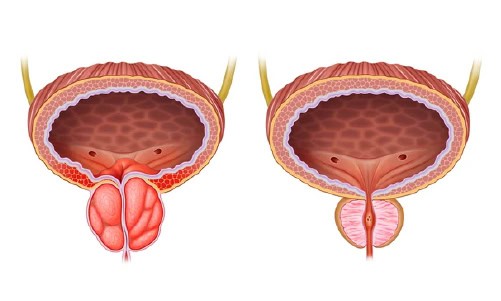Enlarged Prostate, or benign prostatic hyperplasia (BPH), requires effective treatment to alleviate symptoms like urinary hesitancy, urgency, and frequent urination. Treatment options range from medications to minimally invasive procedures, addressing complications like urinary retention and recurrent urinary tract infections. If you're considering treatment for prostate enlargement, reach out to us, or book a direct appointment with our urologist. At the CK Birla Hospital, we are dedicated to ensuring that your prostate enlargement treatment is as safe, comfortable, and effective as possible. We're here to guide you every step of the way towards a successful recovery.

Healthcare professionals and researchers lack certainty regarding the origins of prostate enlargement.
One hypothesis suggests that as individuals age, there is a decline in testosterone levels (low testosterone), while oestrogen levels remain stable. This hormonal shift may prompt prostate cell enlargement. Interestingly, individuals supplementing with testosterone may experience the development or exacerbation of BPH.
Moreover, individuals assigned male at birth (AMAB) in older age brackets typically exhibit elevated levels of dihydrotestosterone (DHT). DHT, a more potent variant of testosterone, is known to contribute to prostate enlargement.
The risks of an untreated enlarged prostate are:
Several different types of surgery can address prostate tissue blockage, including:
New BPH treatments offer less invasiveness and quicker recovery, like:
Common side effects include increased urination and discomfort. Recovery time is typically short, with symptom improvement within weeks.
The cost of a prostate enlargement surgery varies as per the specific type advised by a healthcare provider, such as:
The cost can also vary widely depending on several factors, including the location, the extent of the procedure, the surgeon’s experience, and the hospital’s pricing structure.
To get an explicit estimate for the cost of an enlarged prostate surgery at the CK Birla Hospital, contact the hospital directly. Additionally, you can consult with our board-certified urologist to discuss your specific needs and receive a personalised quote for the procedure.
To reduce your risk of developing BPH, consider the following:
Lifestyle changes
Supplements that may aid in reducing enlarged prostate risk include:
Before starting any new supplements, consult your healthcare provider to avoid adverse reactions to existing medications or supplements.
Tests
Various diagnostic tests are conducted, including:
Medication history is crucial; some drugs affect urinary function. Adjustments should be supervised by healthcare professionals. Communicate self-care attempts and outcomes to your clinician after at least 2 months.
Enlarged Prostate, or benign prostatic hyperplasia (BPH), is a non-cancerous growth of the prostate gland, common in ageing men, causing symptoms like frequent urination, weak urine stream, and difficulty starting urination.
Surgery for an enlarged prostate is typically recommended when symptoms are severe, medications are ineffective, complications arise (such as urinary retention or kidney damage), or there’s suspicion of prostate cancer.
Surgical interventions for enlarged prostate offer benefits like symptom relief and improved quality of life and sexual health.
Alternative therapies for enlarged prostate symptoms include herbal supplements like saw palmetto, lifestyle changes (diet, exercise), acupuncture, and pelvic floor exercises. It is wise to speak with a specialised doctor for enlarged prostate treatment (urologist).
After treatment for Enlarged Prostate, prostate screenings should continue as per guidelines, typically involving regular prostate-specific antigen (PSA) tests and digital rectal exams as recommended by your healthcare provider.